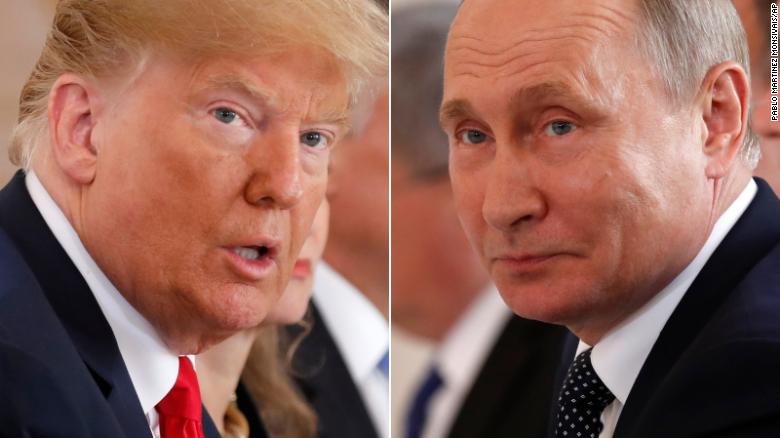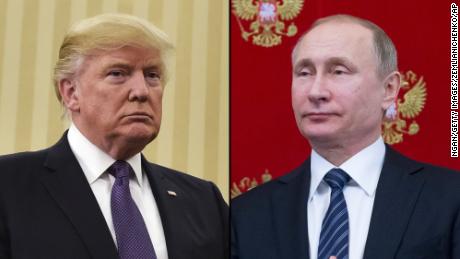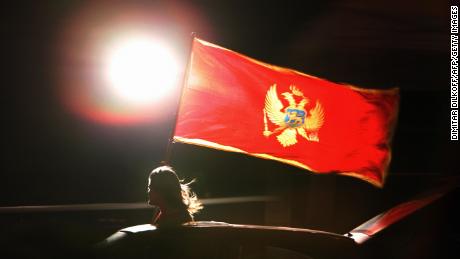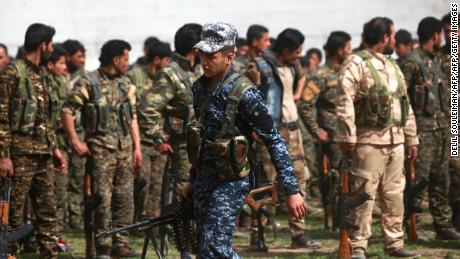Washington (CNN)The top US general in the Middle East told reporters that he has received "no specific direction" in the wake of Monday's meeting between President Donald Trump and Russian President Vladimir Putin, despite Russia's claims that agreements had been reached with regard to military cooperation.
"We have received no specific direction at this point," Gen. Joseph Votel, the head of US Central Command, which oversees US troops in the region, told reporters at the Pentagon via a video teleconference.
Writing on Twitter Thursday, Trump also appeared to suggest that while many issues related to the region had been discussed, the implementation of any agreements would not take place until a second meeting between Trump and Putin.
Trump tweeted: "The Summit with Russia was a great success, except with the real enemy of the people, the Fake News Media. I look forward to our second meeting so that we can start implementing some of the many things discussed, including stopping terrorism, security for Israel, nuclear............proliferation, cyber attacks, trade, Ukraine, Middle East peace, North Korea and more. There are many answers, some easy and some hard, to these problems...but they can ALL be solved!"
Votel said he was "not privy" to any talks between the US, Russia and Israel that would seek to draw down US forces in Syria in exchange for Russian guarantees to keep Iranian forces and Iranian backed-groups away from the Israel-Syria border region.
"I'm not privy to any kind of grand bargain discussion or anything like that," Votel said.
He also noted that the US military is prohibited by law from coordinating, synchronizing, or collaborating with Russian forces.
After the 2014 Russian military incursion in Ukraine and its seizure of Crimea, Congress prohibited "any bilateral military-to-military cooperation" with Russia in its passage of the National Defense Authorization Act.
Votel said any cooperation "would have to be created by Congress or a waiver that they would approve to allow us to do something like that. I have not asked for that at this point and we'll see what direction comes down."
On Tuesday, a spokesman for the Russian ministry of defense said Russia was ready to pursue agreements by Trump and Putin "in the sphere of international security," including issues of "cooperation in Syria."
The White House and Pentagon would not confirm any agreements had been made or offer any details.
"When we are able to provide more details, we will, but rest assured, the US Department of Defense remains laser focused on the defense of our nation," chief Pentagon spokesperson Dana White told CNN late Wednesday.
The National Security Council would not confirm what Trump had agreed to in his one-on-one with Putin. A spokesman for the NSC told CNN on Tuesday that they were still "reviewing the discussion."
The US military does "de-conflict" with Russian forces in Syria as part of an effort to avoid accidents, as both the US and Russian militaries operate in relative close proximity to one another there.
Votel said the de-confliction hotline in Syria has "remained a professional interchange."
























